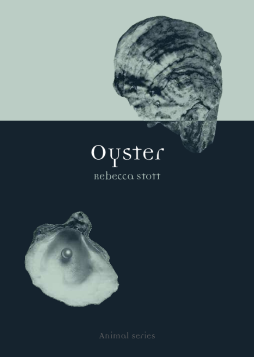
Additional Information
Book Details
Abstract
As everybody knows, oysters are the ultimate aphrodisiac. Casanova is said to have eaten 50 raw oysters every morning with his mistress of the moment, in a bathtub designed for two. Whether oysters truly have exciting properties is open to debate, but like all seafoods, they contain high amounts of phosphorus and iodine, which are believed to be conducive to stamina. Author and food expert M.F.K. Fisher wrote: "There are many reasons why an oyster is supposed to have this desirable quality . . . Most of them are physiological, and have to do with an oyster’s odour, its consistency, and probably its strangeness."
As well as an aphrodisiac, the oyster has since the earliest times been an inspiration to philosophers, artists, poets, chefs, gourmets, epicures and jewellers. It has been pursued by poachers and thieves, and defended by oyster-police and parliaments.
In Oyster, literary historian and radio broadcaster Rebecca Stott tells the extraordinary story of the oyster and its pearl, revealing how this curious creature has been used and depicted in human culture and what it has variously meant to those who have either loved or loathed it: the Romans carried much-sought-after British oysters across the Alps on the backs of donkeys to be eaten as delicacies at banquets in Rome, whilst by contrast Woody Allen once famously said "I will not eat oysters. I want my food dead – not sick, not wounded – dead."
Using many unusual images and anecdotes, Oyster will appeal to oyster lovers and haters everywhere, and for those too who have an interest in the way animals such as the oyster have woven themselves into the fabric of our culture.
"This addictive book gives the oyster its cultural, historical, scientific and nutritional due."
— The Times (London)
"Part of Reaktion's superb animal series, Stott's book doesn't disappoint. Intelligently written and lavishly illustrated, Oyster is a feast for the eyes and mind."
— P.D. Smith, The Guardian
"The book is full of great facts, quirky stories and the obligatory--but in this case entertaining--chapter on seduction."
— Delicious
"marvellous ... The most luxuriously illustrated volume yet in the Reaktion 'Animal' series ... Treat yourself to a dozen oysters, a bottle of Chablis and this delicious book."
— Todd McEwen, The Glasgow Herald
"This little book... is bursting with amusing oyster anecdotes."
— Waitrose Food Illustrated
"This fascinating, beautifully produced and illustrated account is based on worldwide scholarship enlivened by some pretty saucy stuff... Altogether, this is a sucucculent little book. Tuck in!--John Jollife, Country Life
— John Jollife, Country Life"Her well-researched Oyster dazzles with its breadth of details and observations. . . . An ambitious undertaking . . . . Stott's Oyster pleases the reader with its wealth of information, its prodigious research into the zoological aspects of the androgynous mollusk, and its sure-hand appraisal of oyster literature and lore. . . . commendable study." — Joan Reardon, Gastronomica
"Happily, Storr's account includes a rigorous awareness of oysters as living beings, more than mere playthigns for the human palate. Complementing the natural history (and the cultural history too) are Reaktion's trademark luminous illustrations. . . . If each volume pleases as much as does Oyster, I'll soon need a new bookshelf built. . . . I defy anyone to emerge from a reading of Oyster with indifference intact." — Barbara J. King, Bookslut
"I'm addicted to London-based Reaktion Books's Animal Series . . . [the books in the series] offer sumptuous portions of natural and cultural history so surprising and visually gorgeous that readers will never again see the book's focal animal in the way they had before."-—Barbara J. King, Bookslut — Bookslut
Rebecca Stott is Professor in the Department of English and Drama, Anglia Polytechnic University, Cambridge, and is the author and co-author of many books including The Fabrication of the Late Victorian Femme Fatale (1992), Darwin and the Barnacle (2003) and Theatres of Glass: The Woman who Brought the Sea to the City ( 2003).
